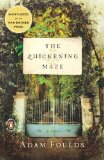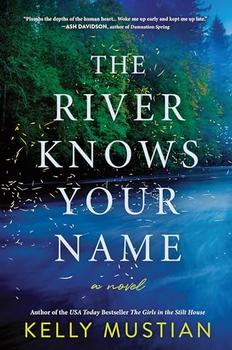Summary | Excerpt | Reading Guide | Reviews | Beyond the book | Read-Alikes | Genres & Themes | Author Bio

With extraordinarily vivid characters and unflinching prose The Great Stink marks the debut of an outstandingly talented writer in the tradition of the best historical novelists.
It is 1855, and engineer William May has returned home to his beloved wife from
the battlefields of the Crimea. He secures a job transforming London's sewer
system and begins to lay his ghosts to rest. Above ground, his work is
increasingly compromised by corruption, and cholera epidemics threaten the city.
But it is only when the peace of the tunnels is shattered by murder that William
loses his tenuous hold on sanity. Implicated in the crime, plagued by visions
and nightmares, even he is not sure of his innocence. Long Arm Tom, who
scavenges for valuables in the subterranean world of the sewers and cares for
nothing and no one but his dog, Lady, is William's only hope of salvation. Will
he bring the truth to light?
With extraordinarily vivid characters and unflinching prose that recall Year of
Wonders and The Dress Lodger, The Great Stink marks the debut of an
outstandingly talented writer in the tradition of the best historical novelists.
This is a gripping, richly atmospheric and exceptionally well researched first novel that delivers a fast paced, credible story-line against the background of one of the great feats of British architecture - the building of the London sewer system (made all the more challenging because much of London is 30 feet below the River Thames at high tide, making drainage by gravity alone impossible)...continued
Full Review
(134 words)
This review is available to non-members for a limited time. For full access,
become a member today.
(Reviewed by BookBrowse Review Team).
If you had a choice between being a tosher, mudlark, rag-and-bone man, scavenger or riverman in Victorian London, which would you choose?
London was a dangerous place with an unnerving number of bodies ending up in the river - cutpurses would murder their victims and throw the bodies in the river,
drunken sailors fell overboard, dock fights would result in more bodies in the
river, and why pay the expense of a burial when granny could be dropped down the sewer and end up in the Thames?
Rivermen scraped a living hauling corpses from the river with long boat hooks in the hope of finding valuables in their clothing.
Mudlarks were mostly children who searched the mudflats of the Thames at low tide looking for anything of value - coins...
This "beyond the book" feature is available to non-members for a limited time. Join today for full access.

If you liked The Great Stink, try these:

by Adam Foulds
Published 2010
In 1837 the great poet John Clare finds himself in High Beach - a mental institution on the outskirts of London. Soon another famed writer, the young Alfred Tennyson, moves nearby and grows entwined in the cloistered world of High Beach and its residents. (Paperback Original)

by Charles Todd
Published 2008
The nineth Inspector Ian Rutledge mystery, set in Post-World War I England. Rutledge is called on to prove the innocence of a man he dislikes and distrusts. But the deadly triangle also stirs up memories of the woman he himself loved and lost when he went to France to fight.



Anagrams
Click Here to find out who said this, as well as discovering other famous literary quotes!